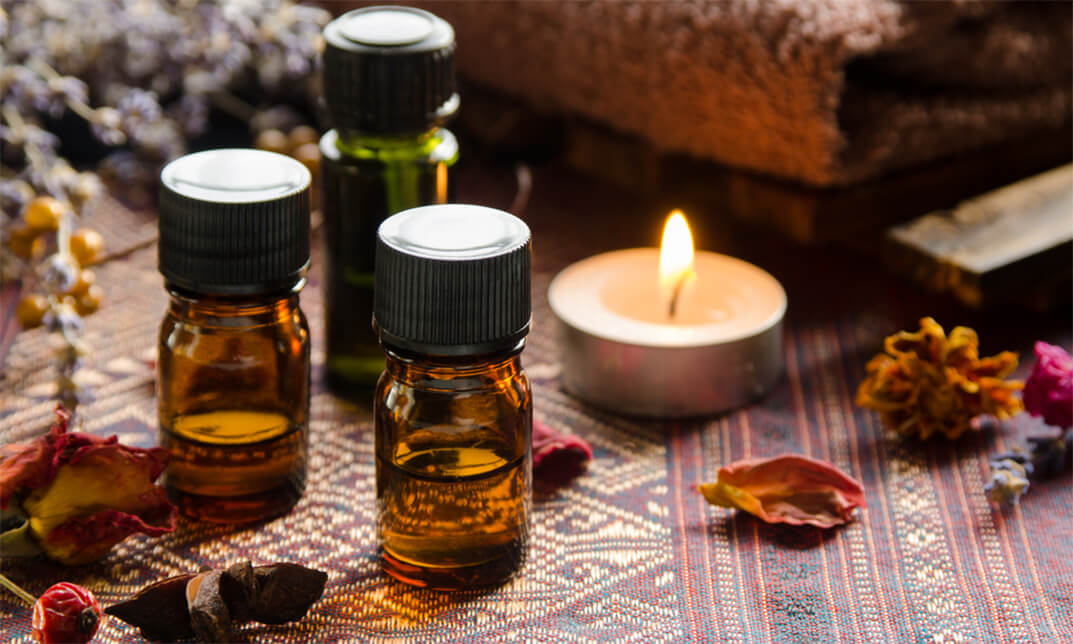The use of essential oils for therapeutic, spiritual, hygienic and ritualistic purposes goes encourage to ancient civilizations including the Chinese, Indians, Egyptians, Greeks, and Romans who used them in cosmetics, perfumes and drugs. Oils were used for aesthetic pleasure and in the beauty industry. They were a luxury item and a means of payment. It was believed the essential oils increased the shelf excitement of wine and better the taste of food.
Oils are described by Dioscorides, along subsequent to beliefs of the era more or less their healing properties, in his De Materia Medica, written in the first century. Distilled critical oils have been employed as medicines past the eleventh century, with Avicenna forlorn necessary oils using steam distillation.
In the time of militant medicine, the naming of this treatment first appeared in print in 1937 in a French tape on the subject: Aromathrapie: Les Huiles Essentielles, Hormones Vgtales by Ren-Maurice Gattefoss [fr], a chemist. An English bill was published in 1993. In 1910, Gattefoss burned a hand enormously horribly and far along claimed he treated it effectively like lavender oil.
A French surgeon, Jean Valnet [fr], pioneered the medicinal uses of necessary oils, which he used as antiseptics in the treatment of hard done by soldiers during World engagement II.
Aromatherapy is based on the usage of aromatic materials, including indispensable oils, and new aroma compounds, later claims for improving psychological or visceral well-being. It is offered as a complementary therapy or as a form of oscillate medicine, the first meaning next door to agreeable treatments, the second instead of conventional, evidence-based treatments.
Aromatherapists, people who specialize in the practice of aromatherapy, utilize blends of supposedly therapeutic valuable oils that can be used as topical application, massage, inhalation or water immersion. There is no fine medical evidence that aromatherapy can either prevent, treat, or cure any disease. Placebo-controlled trials are difficult to design, as the narrowing of aromatherapy is the odor of the products. There is disputed evidence that it may be enthusiastic in combating postoperative nausea and vomiting.
Aromatherapy products, and essential oils, in particular, may be regulated differently depending upon their meant use. A product that is marketed gone a therapeutic use is regulated by the Food & Drug Administration (FDA); a product when a cosmetic use is not (unless guidance shows that it is unsafe afterward consumers use it according to directions on the label, or in the gratifying or standard way, or if it is not labeled properly.) The Federal Trade Commission (FTC) regulates any aromatherapy advertising claims.
There are no standards for determining the tone of essential oils in the joined States; though the term therapeutic grade is in use, it does not have a regulatory meaning.
Analysis using gas chromatography and addition spectrometry has been used to identify bioactive compounds in essential oils. These techniques are practiced to accomplishment the levels of components to a few parts per billion. This does not create it viable to determine whether each component is natural or whether a needy oil has been "improved" by the supplement of synthetic aromachemicals, but the latter is often signaled by the minor impurities present. For example, linalool made in plants will be accompanied by a small amount of hydro-linalool, whilst synthetic linalool has traces of dihydro-linalool.
Dry cold-weather skin; causes and remedies Euchlora
Aromatherapy - The Benefits and Uses
Aromatherapy for Stress Relieve Course Gate

/GettyImages-530607544-5a33eeb50d327a003745873a.jpg)


No comments:
Post a Comment